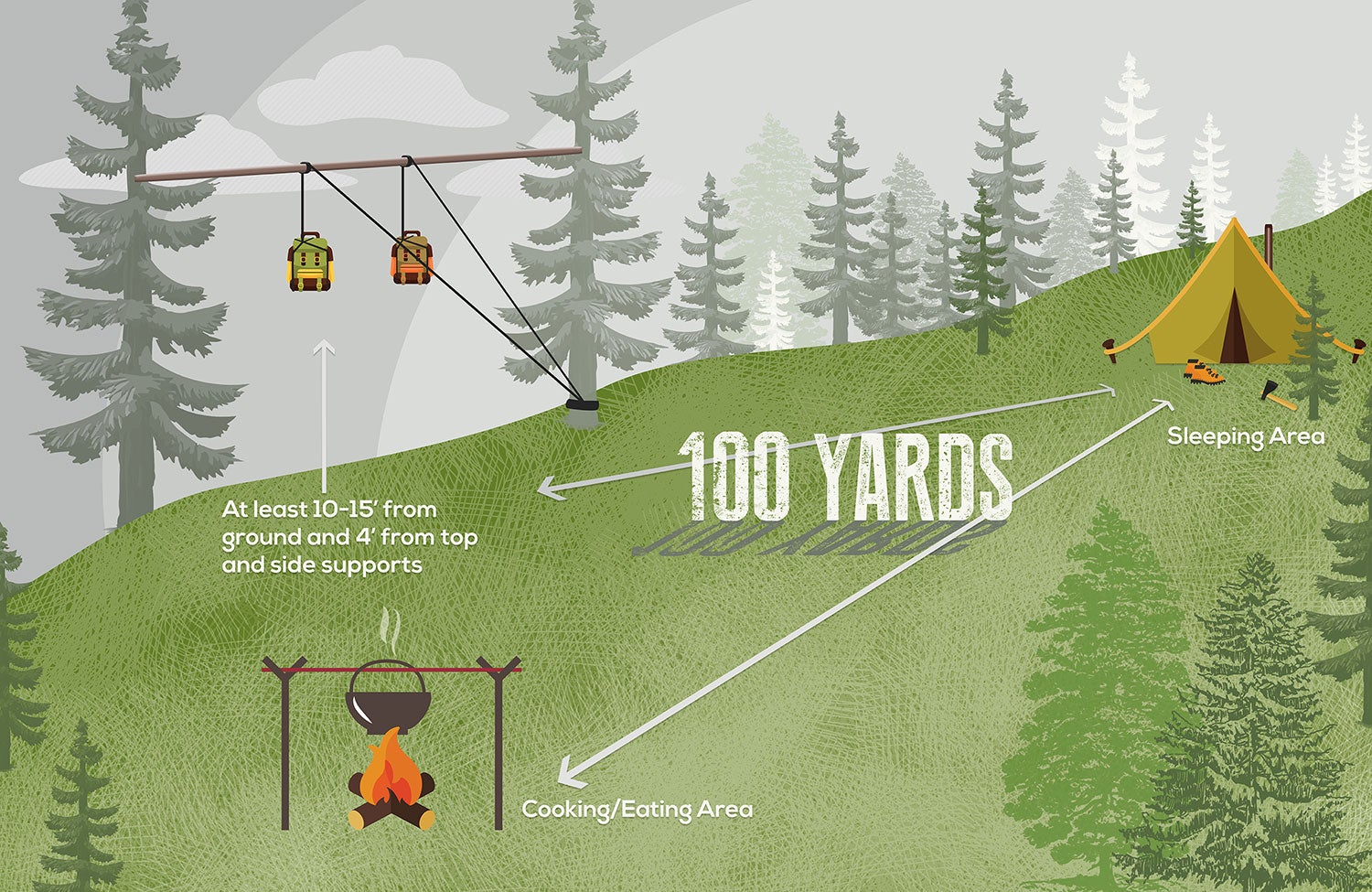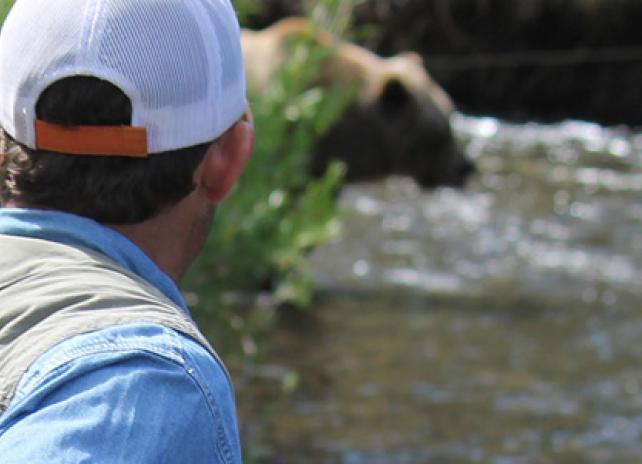Hunter's and Fishers in Bear Country
As sportspersons it is our responsibility to behave appropriately in bear country. This information can greatly reduce the chances of a human/bear conflict.
Why hunters and anglers are at risk of bear encounters
- Quietly pursuing game in the field or fishing next to loud rivers and streams.
- Masking of human scent and moving into the wind.
- Being active during dusk and dawn.
- Use of game calls.
- Handling of big game carcasses or fish.
How to avoid bear encounters
How to avoid bear encounters
- Always hunt or call with a partner and stay within sight of each other.
- Remain alert and watchful for bear activity; avoid “tunnel vision” while pursuing game.
- Learn to recognize bear sign such as scat, tracks, and diggings.
- Know where seasonal food sources are present and either avoid or be especially cautious in those areas.
- Be aware that the presence of ravens and other scavengers is a good indication that carcasses or gut piles are nearby and a bear may be in the area.
- Carry a defense readily accessible. The knowledge of how to use your defense should be automatic.
Proper handling and retrieval of game
- The best way to minimize conflicts over a carcass is to pack and remove the game meat out of the field as quickly as possible. The longer game is in the field, at camp, or in the back of a vehicle the more likely it is to be discovered by a bear.
- Separate the carcass from the gut pile with as much distance as possible.
- Quarter and hang the carcass in a tree at least 10’ to 15’ from the ground and 4’ from the tree trunk.
- If you must leave the carcass on the ground, place it in plain view so when you return, you can see if a bear is present or if it has been disturbed prior to making your approach. Placing something conspicuous on the carcass that may help you detect if there has been a bear at the carcass. For example branches or an article of clothing that can easily be seen from a long distance.
- When returning to a carcass that has been left overnight, use caution. Stop and view the carcass from a distance with binoculars. Approach the carcass upwind and make sufficient noise to alert a bear of your presence.
- If you detect disturbance from a distance or if the carcass has been buried, a bear has probably been to the carcass or may be bedded nearby.
- Never attempt to scare a bear off of a carcass it has claimed.
- In camp, store game meat, capes, and dirty tools/clothes at least 100 yards from your sleeping area and preferably down wind.
- Clean fish at designated cleaning station or at home. Wash all your gear to ensure there are no desirable odors for future use.
Image


